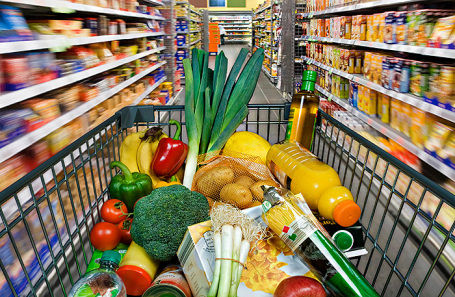While global headlines often focus on geopolitical grand narratives, the pulse of a nation is often best felt through the seemingly mundane, yet deeply impactful, issues shaping everyday life. In Russia, recent weeks have seen a fascinating array of domestic developments, ranging from antitrust probes into the price of plastic bags to the ongoing urban skirmishes over electric scooters and the nuanced complexities of nationalizing beer production. These stories, though disparate, offer a vivid snapshot of a society grappling with modern challenges, consumer rights, and the perpetual quest for balance between regulation and convenience.
The Curious Case of the Costly Carrier Bag

Who would have thought a simple plastic bag could spark a national debate and an antitrust investigation? Yet, in Russia, this inconspicuous item has become a symbol of potential market manipulation. The Federal Antimonopoly Service (FAS) has launched a probe into major retail chains—Pyaterochka, Perekrestok, Magnit, and Dixy—following a curious, synchronized price hike for their plastic “T-shirt” bags. Over the past year, the price for these ubiquitous carriers jumped by approximately 25%, settling conveniently at a uniform 9.99 rubles (roughly 11 US cents) across all these chains. This, despite a reported wholesale cost of merely 2.5-3 rubles per bag.
What adds a dash of intrigue to this retail riddle is the alleged lack of clear price tags. Consumers reportedly discover the cost only at the electronic checkout terminal, a practice that has raised eyebrows among consumer rights advocates. Given that an estimated 60% of shoppers purchase these bags daily, the cumulative revenue for retailers is projected to be in the billions of rubles. It`s a testament to the power of a small, seemingly insignificant item to generate significant income, or, as some suspect, to mask other operational costs like retail shrinkage. Whether this uniform pricing is a result of market forces or a coordinated effort, FAS is now tasked with uncovering the truth. The irony of an entire nation debating the price of a plastic bag is not lost on observers, highlighting how deeply intertwined economic policy is with the everyday consumer experience.
The Scooter Saga: Navigating Urban Chaos

From the subtle economics of plastic bags, we turn to the more visible chaos of urban transportation. The burgeoning popularity of electric scooters has presented a global challenge for city planners, and Russia is no exception. Kudrovo, a densely populated satellite town near St. Petersburg, has become the latest battleground, with local authorities threatening to terminate agreements with kick-sharing services.
The complaints are familiar: scooters left strewn across sidewalks, blocking entrances, or even abandoned in nearby forests. With over 1,000 units in Kudrovo, a town of 70,000 without a metro station, the issue is particularly acute. For many residents, e-scooters offer a vital “last-mile” solution, cutting down arduous 30-40 minute bus commutes or half-hour walks to the nearest metro station in St. Petersburg. The authorities, however, contend that the sheer volume and irresponsible parking are overwhelming the urban environment.
Kick-sharing companies like Yandex GO and MTS Urent have responded by deploying “scouts” to monitor parking and enhancing in-app maps with clear parking zones. Yet, the debate continues. Yekaterinburg offers an intriguing federal-level proposal: a “SIM driver” concept requiring a special card, akin to a Fun ID, obtained via a mandatory medical examination and State Services portal (Gosuslugi) identification. This aims to curb the rampant use of fake accounts and enhance accountability for violations. While such a system promises greater order, the logistical challenge of implementing it for potentially millions of users remains a significant hurdle. The scooter saga perfectly encapsulates the ongoing struggle to integrate new technologies responsibly into the fabric of urban life, balancing convenience with public order.
The “Russian Beer” Standard: A Hop-timistic Vision or a Hoax?

In the realm of economic policy, Russia continues its push for greater localization, and this initiative has now reached the humble pint. The Ministry of Agriculture is championing the creation of a “Russian Beer” standard, with Roskachestvo (the Russian Quality System) proposing that at least 95% of the raw materials must be of Russian origin by the end of 2025. The ambition is to emulate the success of the “Russian Wine” law, fostering a stronger domestic industry.
However, local brewers, those closest to the hops and barley, remain largely skeptical. As one craft brewery owner succinctly put it, “We already use Russian malt as much as possible, but the problem is with hops—Russia doesn`t have it.” Another brewer highlighted the dependency on imported yeast strains and the limited diversity of Russian hop varieties. They question the very purpose of such a standard: “What will giving beer a `Russian origin` name achieve? Is it better? Is it unique? No, there`s nothing unique here.”
Adding a touch of technical irony, some brewers point out that given beer`s primary ingredient is water, and most Russian breweries use local water, nearly all beer produced would, in essence, already qualify under a 95% localization rule. This raises concerns that the standard, rather than promoting the growth of domestic hop farming or yeast production, might simply become a discriminatory label, penalizing brewers who rely on specific imported ingredients for quality and flavor. It`s a classic case of ambitious policy meeting the practical realities of agricultural and industrial capacity, underscoring the complexities of achieving true import independence.
Concluding Thoughts: The Everyday Canvas of Change
These seemingly disparate headlines—a suspicious price hike on plastic bags, the ongoing saga of urban scooters, and the aspirations (and skepticism) around a “Russian Beer” standard—paint a compelling picture of Russia`s domestic landscape. They illustrate a nation actively navigating the minutiae of modern life, from consumer protection and urban planning to industrial self-sufficiency.
Each story, in its own way, reflects a continuous effort to shape a more ordered, accountable, and resilient society. Whether it`s through antitrust investigations, urban mobility regulations, or agricultural policy, Russia is grappling with the fine print of daily existence, proving that even the most mundane aspects of life can become subjects of significant public and governmental debate.







